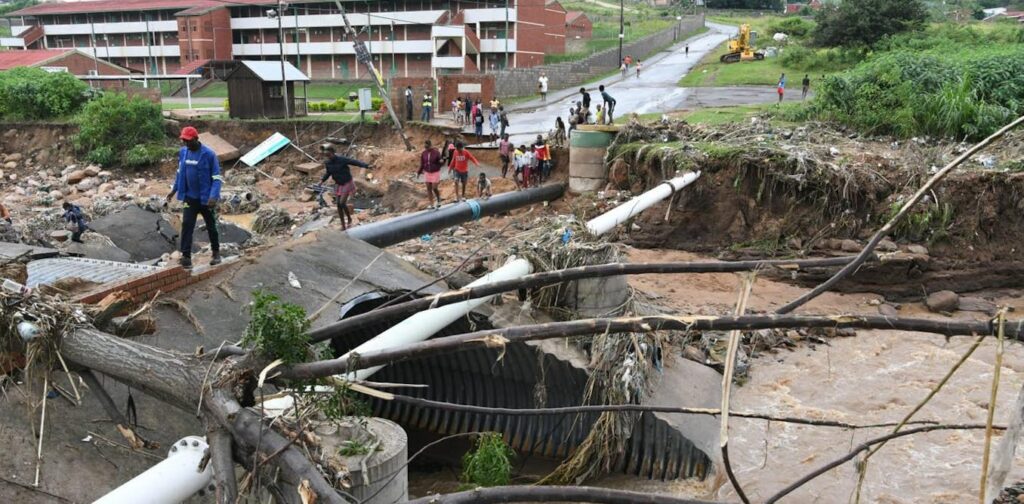In April 2022, KwaZulu-Natal, South Africa, experienced its most devastating flood in over a century, resulting in 544 fatalities, the displacement of over 40,000 people, and significant damage to more than 4,000 homes and businesses. The economic impact was severe, especially for major industries affected by extensive flooding.
Following this disaster, two insurance companies have filed lawsuits against South African state entities for billions of rand, arguing government negligence in maintaining stormwater infrastructure heightened the damage. These cases raise critical questions about liability for climate-related events as extreme weather becomes more frequent due to global warming.
The South African climate is becoming increasingly vulnerable to such disasters, with studies linking the severity of the floods to climate change. The lawsuits are unprecedented in their scale; for instance, Toyota South Africa Motors seeks R6.5 billion ($368.4 million) in damages due to flooding that halted operations and led to lost production.
Historically, lawsuits regarding flood damage have been smaller in scale and often faced legal obstacles, including strict procedural requirements for suing government entities. Insurers must demonstrate negligence and causality to succeed in their claims, which can be challenging.
If successful, these cases could revolutionize climate liability and push the government toward better infrastructure maintenance. However, this dynamic poses risks, as governments—already stretched for resources—may struggle to respond effectively to increased claims while managing public budgets. This situation highlights the complexities of accountability and governance in the context of climate change.
Source link


